|
Following the Oct. 7th atrocities committed against Israeli citizens, retaliatory attacks against Hamas with many innocents caught in the crossfire led to protests on campuses nationwide that shut down students’ freedom of movement and learning. Whatever one’s view of that conflict, it is undeniable that many anti-Israel protests turned into antisemitic persecution of students and faculty. Nowhere were these attacks as dark or troubling as those that occurred at the University of California, Los Angeles.
From April 25, 2024, to May 2, 2024, UCLA permitted a group of protestors to set up barricades in the heart of campus, creating what was widely termed a “Jew Exclusion Zone.” Activists locked arms, racially profiled students and faculty presumed to be Jewish, and refused to allow them access to campus or educational buildings unless someone vouched for their belief in the anti-Israel cause. The university, for its part, facilitated this occupation by failing to break up the blockade for a full week. Administrators even went so far as to hire private security to direct Jewish students away from the encampment, where calls for “death to Israel” and “death to Jews” were commonplace. As Chancellor Gene Block testified before Congress, events at UCLA reflected “the disturbing rise of antisemitism across our country since October 7th,” which placed Jewish students in “a state of anxiety and fear.” Now, the Becket Fund, representing three Jewish students from UCLA, is bringing suit against the university. As the plaintiff’s memorandum correctly alleges, the university’s acquiescence to the creation of a disruptive, discriminatory, and dangerous environment right in the heart of campus – in turn, preventing Jewish students from accessing public facilities – constitutes a violation of the Free Exercise Clause, the Free Speech Clause, and the Equal Protection Clause. It also implicates Title VI, which provides that “[n]o person in the United States shall, on the grounds of race, color, or national origin, be excluded from participation in, be denied the benefits of, or be subjected to discrimination under any program or activity receiving Federal financial assistance.” The requested preliminary injunction would require that a plaintiff “establish[es] that he is likely to succeed on the merits, that he is likely to suffer irreparable harm” without issuance of an injunction, “that the balance of equities tips in his favor, and that an injunction is in the public interest.” The plaintiffs plainly meet those criteria. Without judicial intervention, there can be no guarantee that Jewish students will be able to safely access the public educational benefits to which they are entitled when they return to campus next month. As Becket Fund president Mark Rienzi said last month in congressional testimony, these episodes sound more like 1930s Germany than 2020s America. But there is a way forward. Rienzi said: “Together, we can defeat the scourge of antisemitism in our institutions of higher learning and society by ‘giving to bigotry no sanction, to persecution no assistance.’ Together, we can live up to George Washington’s promise that in this country, none shall be made afraid on account of his faith or ancestry. And together, we can ensure that the promises of our Constitution and our civil rights laws are kept and safeguarded.” Kudos to the Becket Fund for taking a stand against ignorance and intolerance. We’ll be following this case closely. There are tens of thousands of after-hours student groups in high schools across the country – from those celebrating film, music, chess, or drama to those of a more political or religious nature. At Noblesville High School in Indiana, for example, you could join the Young Democrats, the Young Republicans, the Fellowship for Christian Athletes, or the Gender and Sexuality Alliance. The one group students can no longer join is the Noblesville Students for Life (NSFL).
In August 2021 a freshman at Noblesville received initial approval to start a Students for Life chapter, which attracted 30 student sign-ups at the school’s fall activities fair. The following month, the student organizer prepared a poster advertising a club meeting, which featured a photograph of students outside the U.S. Supreme Court holding up life-affirming protest signs. Then Noblesville’s principal “derecognized” the group, calling the poster “inappropriate” and too “political.” Noblesville, apparently, has a policy allowing administrators broad authority to issue prior restraints on student speech, barring “anything political in nature” as well as specific “political stance[s].” What constitutes “political” is entirely undefined and left up the whims of the individual administrator. In December 2021, in coordination with Charitable Allies, the group’s student organizer brought suit against the school district, alleging First Amendment retaliation. The suit also claimed violations of the Equal Access Act, which prohibits discrimination against the political content of student groups meeting outside of class. School administrators have every right to prevent students from engaging in disruptive conduct, but students have every right to express their First Amendment-protected viewpoints after hours. Schools are limited public fora, which may issue viewpoint-neutral restrictions on groups. What they should not do is bar targeted political speech and then make ad hoc, biased determinations of what is unacceptable on a case-by-case basis. How the school found NSFL overly political when the Young Democrats and Young Republicans are permitted to meet and advertise their meetings is unfathomable. The administrators, of course, now claim they derecognized the club because of the student’s behavior, an argument contradicted by the evidence and the many contextual clues pointed out by the plaintiffs. It seems pretty clear that the principal simply doesn’t want the pro-life viewpoint represented at Noblesville High. Ultimately, a District Court bought the school’s argument. Now the student is appealing to the Seventh Circuit, and this case is receiving legal backing from the Alliance Defending Freedom. We hope that the court will recognize that rules must be neutral and that students don’t relinquish their First Amendment rights at the schoolhouse door – no matter how much some administrators might wish it were so. The double standard in academia is reaching sickening levels.
At Rutgers, as at many universities, students who wear some outward sign of adhering to the Jewish faith, such as a kippah or a Star of David necklace, are often stopped and interrogated by self-appointed ideological vigilantes. At the same time, Jewish students are denied the right to hold a peaceful event on campus – including the forced cancellation of a peaceful, pro-Israel barbecue on the Rutgers University campus – out of fear of provoking violence from pro-Hamas protestors occupying the campus. When rhetoric gets violent and confrontation becomes intimidating, viewpoint discrimination edges into persecution. Yet many elite universities flirt with such danger. We would be justly outraged if a young woman on campus was harassed for wearing a hijab, or a young Sikh man was stopped and interrogated about his turban. Yet administrators at Rutgers and other institutions are often missing in action when the targets are Jewish students. A recently filed lawsuit by student Rebecca Schafer against Rutgers University shines a light on how escalating antisemitism on America’s university campuses shuts down speech and free inquiry. Schafer, an Orthodox Jewish student, sued the university after enduring months of harassment, intimidation, and discrimination, which she claims the administration failed to address. Schaffer recounts that eight days after the October 7th Hamas attacks on Israel, a student meeting at Demarest Hall took a dark turn when a student expressed joy over the high death toll in Israel, a sentiment that was met with approval from others. The dust had barely settled from this attack in which elderly Israelis were murdered and babies killed in their cribs. This disturbing incident was compounded when a mezuzah, a Jewish prayer scroll affixed to the doorposts of Jewish homes for protection and blessing, was torn from a student's door and discarded in a bathroom. Schafer left the meeting scared and shaking, feeling deeply threatened by the aggression toward her faith. Rebecca Schafer next became a personal target when posters with her photograph and pro-Palestinian slogans appeared outside her dorm room. This act of intimidation was terrifying for Schafer, leading to a police investigation and charges against two students. The chilling message was clear: “You aren’t safe anywhere at Rutgers.” At a recent House hearing in which Rutgers University President Jonathan Holloway and the presidents of other universities were grilled by Rep. Elise Stefanik (R-NY) and other Members, it came to light just how frightening campus occupations are for Jewish students. In a particularly egregious incident, a student directed the remark “Hitler would have loved you” at Schafer during an encampment. Schafer recounts that Jewish students were forced to flee out the back door of university buildings to escape the hostile environment. The portrait painted by Schafer’s lawsuit is of a spineless university administration leaving Jewish students to fend for themselves in the face of violent rhetoric and threats. The slow and methodical approach by Rutgers and other universities would never be tolerated if another ethnic or religious group were persecuted in such ways. When the fall semester begins in a few months, parents, students, and donors must demand college administrators react with alacrity to the persecution of Jewish students or be ready to give up their jobs. Protect The 1st will monitor this story as it develops. The U.S. House of Representatives recently passed the Antisemitism Awareness Act, a well-intentioned response to a genuine concern: escalating antisemitism, particularly on college campuses. While the motives behind this bill are commendable, the legislation, as it stands, threatens to infringe upon the free speech rights that are fundamental to American values and academic freedom. We recommend a more nuanced approach. We urge the Senate to refine the bill to effectively combat hateful conduct without compromising constitutionally protected speech – even if that speech is occasionally heinous.
The Antisemitism Awareness Act seeks to update the definition of antisemitism used in enforcing federal anti-discrimination laws, employing the International Holocaust Remembrance Alliance's (IHRA) definition. This definition includes criteria such as “denying the Jewish people their right to self-determination” and “drawing comparisons of contemporary Israeli policy to that of the Nazis.” While these examples identify antisemitic speech and attitudes, their inclusion in legal statutes brings the government squarely into the business of policing and outlawing speech. This act in its current form has the potential to suppress First Amendment-protected speech. The IHRA definition, though useful as a guideline and for private criticism of antisemitic speech, is too expansive for legal application without risking the suppression of protected political expression. Legal scholars and civil rights activists have noted the dangers of such overreach, which could chill discussions on Israel and Palestine, particularly within academic institutions where vigorous debates are necessary. Worse, the act's broad language risks transforming universities into environments in which administrative caution stifles debate and discussion out of fear of legal repercussions. This could have a chilling effect on academic freedom on many subjects, as educators may become reluctant to address or discuss hot topics. From here, what effectively would be the legal suppression of speech would inevitably spread to protect other groups. A private university has the free-association right to fire a professor or suspend a student for intemperate speech. Frankly, there have been some high-profile examples of academics – glorifying the abduction and rape of women and the murder of babies on Oct. 7 – who richly deserve to spend the rest of their academic careers lecturing squirrels in the park. But the broader legal consequences of this bill in all universities for academic inquiry and the free exchange of ideas – cornerstones of higher education in the United States – are profoundly concerning. The Senate should carefully scrutinize this legislation. It is essential that any law aimed at curbing antisemitism be precise enough to target hateful behavior without punishing speech. Senators should consider amendments that clearly distinguish between hateful acts that single out people by religion and speech, no matter how intemperate, ensuring that the legislation protects individuals without compromising the robust civil discourse essential to a free society. While calling out antisemites is vital and necessary, it must not come at the expense of the constitutional rights that define American democracy and academic freedom that defines the university. We urge an approach in the Senate that robustly defends both Jewish students and free speech. And we politely suggest to supporters of the House bill that once you start to police speech, don’t be too surprised when the speech police come for you. Sometimes it seems as if the left and the right are in a contest to see which side can be the most illiberal. With each polarity defining the other as a “threat to democracy,” restrictions on political opponents are rationalized away as a necessary act of public hygiene. Recent events in Europe, from Budapest to Brussels, should serve as a warning to Americans who want to use police power to make their opponents shut up.
In December, the U.S. State Department warned that a new Sovereign Defense Authority law in Hungary “can be used to intimidate and punish” Hungarians who disagree with Prime Minister Viktor Orbán and his ruling party. No less an observer than David Pressman, the U.S. ambassador in Budapest, said: “This new state body has unfettered powers to interrogate Hungarians, demand their private documents and utilize the services of Hungary’s intelligence apparatus – all without any judicial oversight or judicial recourse for its targets.” So how are left-leaning critics responding to the rise of the Europe right? By also using intimidation to shut down speech. In Brussels, police in April acted on orders from local authorities by forcibly shutting down a National Conservatism conference. This event, which was to host discussions among European conservative figures, including Prime Minister Orbán and former Brexit champion Nigel Farage, was terminated hours after it began. The cited reasons for the closure included concerns over potential public disorder linked to planned protests. Such a policy, of course, gives protesters pre-emptive veto power over controversial speech, backed by the police. The conference had earlier faced official meddling to prevent the selection of a venue. Initial plans to host the event at the Concert Noble were thwarted due to pressure from the Socialist mayor of Brussels. Subsequently, a booking at the Sofitel hotel in Etterbeek was canceled after local activists alerted that city’s mayor, who pressured the hotel to withdraw its support. Finally, the organizers settled on the Claridge Hotel, only to encounter further challenges including threats to the venue’s owner and logistical disruptions orchestrated by local authorities, culminating in the police blockade that effectively stifled the conference. The good news is public response to the shutdown of the National Conservatism conference was vocal and critical. Belgian Prime Minister Alexander De Croo voiced a strong objection, stating that such bans on political meetings were unequivocally unconstitutional. British Prime Minister Rishi Sunak also responded that canceling events and de-platforming speakers is damaging to democracy. The closure in Brussels is particularly ironic given the city's status as the capital of the European Union, a supposed bastion of liberal democratic values. The forced closure, threats to cut electricity, and the barring of speakers are tactics that betray a fundamental disrespect for democratic norms. What transpired was a scenario more befitting a "tinpot dictatorship," as Frank Füredi, one of the event's organizers, put it. Speech crackdowns seem to be a European disease. This aggressive move to silence a peaceful assembly under the guise of preventing disorder echoes the same illiberal impulses driving Scotland's Hate Crime and Public Order Act. That law broadly criminalizes speech under the expansive banner of “stirring up hatred.” Americans would do well to look to Europe to see what cancellation and criminalization of speech looks like. As the cities and campuses of the United States face what promises to be a hot summer of protest over Gaza, Americans need to keep a relentless focus on protecting speech – even speech one regards as heinous – while preventing tent city invasions, vandalism, and violence that compromises the rights of others. A group of pro-Palestine student activists recently hijacked a private dinner at the home of Erwin Chemerinsky, dean of Berkeley Law School, disrupting one of several such events intended to honor the graduating class of 2024. It’s a lesson in decorum, which these students clearly lack. More importantly, it’s a lesson that Chemerinsky himself might cover in one of his constitutional law classes or legal tomes: You have no First Amendment right to public speech on private property.
Chemerinsky himself summarized the disruption in a written statement: “On April 9, about 60 students came to our home for the dinner. All had registered in advance. All came into our backyard and were seated at tables for dinner. While guests were eating, a woman stood up with a microphone, stood on the top step in the yard, and began a speech, including about the plight of the Palestinians. My wife and I immediately approached her and asked her to stop and leave. The woman continued. When she continued, there was an attempt to take away her microphone. Repeatedly, we said to her that you are a guest in our home, please stop and leave. About 10 students were clearly with her and ultimately left as a group.” Alarmingly, the incident followed the publication and display of a poster calling for a boycott of the dinner events, with accompanying cartoon imagery depicting the dean holding a knife and fork covered with blood. The caption read: “No dinner with Zionist Chem while Gaza starves.” The link between Chemerinsky and Israel’s military campaign in Gaza is nebulous, to say the least. Chemerinsky is an American constitutional scholar, not an Israeli war planner. The only inference to be made is that the dean was targeted solely due to his Jewish heritage. For their part, the protestors (seen here in a video of the incident) asserted a First Amendment right to their interruption. To parse the legitimacy of such claims, we might turn to an actual First Amendment scholar, Eugene Volokh, who wrote about the dinner in a recent The Volokh Conspiracy post. He wrote: “Some people have argued that the party was a public law school function, and thus not just a private event. I’m not sure that’s right – but I don’t think it matters. “Even if Berkeley Law School put on a party for its students in a law school classroom, students still couldn’t try to hijack that for their own political orations. Rather, much government property is a ‘nonpublic forum’ – a place where some members of the public are invited, but which is ‘… not by tradition or designation a forum for public communication.’ (Minnesota Voters Alliance v. Mansky (2018) ...” Outside of the protestors’ erroneous legal argument, one might also consider the efficacy of their outburst. Above the Law founder David Lat contrasted the Berkeley protestors’ behavior with that of protestors at the University of Virginia, who recently turned out against a speech by Justice Jay Mitchell of the Alabama Supreme Court (author of the infamous IVF case). There, the protestors “didn’t heckle or harass Justice Mitchell, me, or anyone else who went into his talk. They stood outside the room, quietly holding signs. And once his talk got underway, they left to attend a counter-event …” How refreshing. Inasmuch as the protestors got it wrong here, Berkeley (for once) got it right. In a statement to Law 360, UC Berkeley Chancellor Carol T. Christ said: “I am appalled and deeply disturbed by what occurred at Dean Chemerinsky's home last night. I have been in touch with him to offer my support and sympathy. While our support for free speech is unwavering, we cannot condone using a social occasion at a person's private residence as a platform for protest.” UC Board of Regents Chair Rich Leib, meanwhile, said: “The individuals that targeted this event did so simply because it was hosted by a dean who is Jewish. These actions were antisemitic, threatening, and do not reflect the values of this university.” Berkeley’s reputation as the home of the Free Speech Movement (the name became somewhat Orwellian), continues a decidedly spotty record in recent years. The university’s unequivocal embrace of actual, settled First Amendment doctrine in this instance represents an encouraging development. Naturally, the protestors have since hoisted the banner of victimhood, claiming “pain, humiliation, trauma, and fear” following the incident. With time, we hope they learn the lesson that, in the words of Ronald K.L. Collins in a FIRE blog: “the First Amendment is a shield against government suppression. It is not an ax to swing at compassionate and freedom-loving people in their own homes.” Law schools might further promote First Amendment education by turning to disciplinary action for law students who refuse to learn the nuances of this central principle of American life. The U.S. Supreme Court recently set aside a Fourth Circuit decision in Speech First v. Sands, declining to wade into a snowballing collection of campus speech controversies. Washington Post columnist George Will called this a “passive dereliction of duty.” We wouldn’t go that far. Given the ongoing circuit split regarding campus speech policies, the Court will have to address the issue eventually. They may just need a better avenue – or moment – for doing so.
This case concerns Virginia Tech, which created a “Bias Intervention and Response Team” policy that encourages students to anonymously report to school officials any perceived expressions of bias amongst their cohorts, after which the accused may be referred for discipline. Virginia Tech defined “bias incidents” as “expressions against a person or group” based on “age, color, disability, gender, gender identity, gender expression, genetic information, national origin, political affiliation, race, religion, sexual orientation, veteran status, or any other basis protected by law.” In 2021, advocacy group Speech First sued Virginia Tech on behalf of several students, arguing that the policy unconstitutionally chills speech by creating “a literal speech police” and forcing students to self-censor. The Fourth Circuit ruled for the university in May, siding with the Seventh Circuit (which ruled similarly in another case) and against the Fifth, Sixth, and Eleventh Circuits (which found that campus policies chilling speech constitute sufficient harm to support standing). Speech First estimates that more than 450 colleges have bureaucratic thought police operations similar to Virginia Tech’s – though, likely expecting a negative result in the Supreme Court, Virginia Tech recently modified its policy, leading to the March 4 holding, rendering the controversy moot. Still, Justices Thomas and Alito didn’t hold back in their dissenting opinion urging a resolution in the circuit split. Thomas writes: “This petition presents a high-stakes issue for our Nation’s system of higher education. Until we resolve it, there will be a patchwork of First Amendment rights on college campuses: Students in part of the country may pursue challenges to their universities’ policies, while students in other parts have no recourse and are potentially pressured to avoid controversial speech to escape their universities’ scrutiny and condemnation. We should grant certiorari to resolve this issue.” Until the Court acts, colleges and universities in much of the country will be free to pursue Orwellian surveillance operations against students who fail to embrace predominating dogmas. When another case ripens, the Supreme Court should step in. Earlier this year, the student senate at Columbia Law voted to deny official recognition to Law Students Against Antisemitism, a student group seeking to “raise awareness and educate about both historical and contemporary antisemitism.” Nine other organizations requested official recognition this year, with LSAA being the only group to be denied so far. The reason? According to FIRE, “the rejection appeared to rest on objections to LSAA’s definition of antisemitism, which some pro-Palestine students opposed.”
Although the student senate quickly reversed course, the American Bar Association took it as an opportunity to formalize speech protections. This month, the ABA House of Delegates passed a resolution to adopt Standard 208, a new rule requiring law schools to “protect the rights of faculty, students and staff to communicate ideas that may be controversial or unpopular, including through robust debate, demonstrations or protests.” ABA accreditation requires adhering to Standard 208, or else law schools could be denied accreditation or have it revoked for failing to protect free speech. The importance of this rule should not be missed. As the ABA Journal states, Standard 208 is “the first accreditation standard to address free speech for the entire community within law schools.” Protect The 1st Senior Legal Advisor Eugene Volokh said: “the standard is another tool in the toolbox of a dean who wants to protect free speech and academic freedom … The dean can tell student activists, ‘Look, do you want us to lose our accreditation?’” Nevertheless, Standard 208 is only a Band-Aid to the broader cultural decay for the respect of free speech and intellectual diversity in law schools. “I’ve had a lot of students complain to me that they are reluctant to speak out in class – not because they’re afraid of discipline, but because they’re afraid their classmates will ostracize them,” Volokh said. “But you can’t have a rule to stop that.” The past few years have seen no shortage of campus incidents that would certainly have gone against Standard 208 had it been in effect. Stanford Law students shouted down Judge Stuart Kyle Duncan of the Fifth Circuit Court of Appeals when he came to give a talk in March of last year. Similarly at Yale, Kristen Waggoner of the Alliance Defending Freedom was harassed by an ugly protest over a (irony alert) panel discussion about free speech. Law schools increasingly resemble the hostile and immature playgrounds that undergraduate institutions have become. While Standard 208 will help, we have a long way to go before free speech will be fully restored. The Foundation for Individual Rights and Expression, in collaboration with the Academic Freedom Alliance and the Heterodox Academy, has penned an open letter urging the trustees and regents of American universities to “put neutrality above politicized institutional statements that threaten open debate on college campuses.”
The letter is specifically addressed to the trustees of universities, who wield considerable power to set institutional policy. “It is time for those entrusted with ultimate oversight authority for your institutions to restore truth-seeking as the primary mission of higher education by adopting a policy of institutional neutrality on social and political issues that do not concern core academic matters or institutional operations,” the letter says. “In recent years, colleges and universities have increasingly weighed in on social and political issues. This has led our institutions of higher education to become politicized and has created an untenable situation whereby they are expected to weigh in on all social and political issues." The letter specifically calls on every university to adopt an institutional neutrality policy, much like that espoused by the Kalven Report of the University of Chicago authored in 1967. The letter quotes that report, noting that institutional neutrality is necessary “to pursue truth through ‘the discovery, improvement, and dissemination of knowledge.’ And to accomplish this mission, ‘a university must sustain an extraordinary environment of freedom of inquiry and maintain an independence from political fashions, passions, and pressures.’” Greg Lukianoff, President and CEO of FIRE, said that “a top-down, father-knows-best mentality is absolutely no way to support the next generation of free thinkers. Students and faculty deserve the freedom to experiment with different perspectives and explore entirely new ways of thinking without the college claiming to have done all the thinking for them.” The open letter follows on the heels of FIRE’s annual college free speech index, in which not a single university received a score higher than 79 out of 100. If this were a college class, that would be a C+ ranking. Many of America’s most prestigious institutions receive abysmal rankings. Harvard received a score of zero, which was rounded up because the index couldn’t accommodate negative numbers. Protect The 1st applauds FIRE’s open letter to university trustees and regents. The state of free inquiry in American universities is dire. We need bold leadership to right the course. We look forward to further developments in this story. Jewish students at Harvard are suing the university for failing to address rampant antisemitism on campus. Their case, Kestenbaum v. Harvard, raises sharp questions about free speech and the responsibilities of a private university. Harvard is not required by law to observe the principles of the First Amendment the way a state-sponsored school would. But Harvard must live up to its self-proclaimed commitment to open discourse.
The plaintiffs, Students Against Antisemitism, contend that “since October 7, 2023, when Hamas terrorists invaded Israel and slaughtered, tortured, raped, burned, and mutilated 1,200 people – including infants, children, and the elderly – antisemitism at Harvard has been particularly severe and pervasive.” One of the central claims of the case is that “Harvard selectively enforces its policies to avoid protecting Jewish students from harassment, hires professors who support anti-Jewish violence and spread antisemitic propaganda, and ignores Jewish students’ pleas for protection.” This, combined with the university's reluctance to discipline students engaging in antisemitic behavior, paints a disturbing picture. The lawsuit points out a stark contrast: while Harvard mandates training classes to address various forms of discrimination – including “sizeism,” fatphobia, racism, and transphobia – it seems lackadaisical about antisemitic incidents. This was memorably captured by former Harvard President Claudine Gay who suggested “that calls for the genocide of the Jewish people do not necessarily violate Harvard’s policies.” Furthermore, the case highlights instances where Harvard faculty members have not only condoned but actively participated in rallies characterized as antisemitic. The suit claims the university's response to a student mob taking over a campus building for antisemitic purposes was not disciplinary action but the provision of burritos and candy. The suit alleges that while the university aggressively enforces policies against bias towards other minority groups, it turns a blind eye to antisemitic incidents. The plaintiffs propose disciplinary measures, including the termination of faculty and administrators involved in antisemitic discrimination, as well as suspension or expulsion for students engaged in such conduct. It also calls for antisemitism training for all members of the Harvard community and the rejection of donations implicitly or explicitly conditioned on the promotion of antisemitic views. We commend Students Against Antisemitism for their bold stance against Harvard’s obvious double standard, but some of the lawsuit’s remedies might deepen Harvard’s problematic relationship with free speech – a serious concern for the university with the lowest-ranked commitment to speech in the nation, according to the free-speech organization FIRE. This ranking could actually get worse with the further expansion of diversity, equity, and inclusion (DEI) programs. Under the DEI banner, expansive bureaucracies have already cast a pall over campus speech. We need less of this, not more. Consider how DEI was used at Harvard to defenestrate Carole Hooven, a distinguished author and longtime Harvard lecturer on evolutionary biology who committed the thought crime of asserting that there are two biological sexes. We need fewer such codes, not more, for speech to thrive again on campus. The critical distinction to be drawn is between harsh language and justifications for what constitutes a just war, and the celebration of outright hatred, violence, and heinous acts. As we previously wrote, “if someone is highly critical of Israel, the bombing of Gaza, or is pro-Palestine, they are well within the parameters of a fair debate. But if someone can respond to the murder of babies and find it ‘exhilarating,’ (as one Cornell professor did), they may be within the bounds of the First Amendment, but we have to ask if it’s just the speech that’s evil. At some point, for private entities in particular, the heinous uses some make of free speech rights raise serious questions regarding the freedom of association (or disassociation) choices of the institutions themselves. Educational institutions cannot always hide behind the laissez faire ethos of free speech when choosing the administrators and the professors that represent them, or even the students who form part of the community the university actively creates. Public institutions, like all of society, are challenged to adapt principles spelled out by the U.S. Supreme Court in its 1968 Brandenburg v. Ohio opinion, which gave maximum berth to speech – even hate speech. How do the principles of this ruling apply given the new technological reach of speech and the ability to use social media to incite others to violence in the form of swatting, anthrax, bombs, or doxing? How do we apply that ruling’s maximum respect for speech in modern circumstances so that if only a tiny percentage of followers is responsive to incitement, it still amounts to a high probability of violence? Or, as former U.S. Senator and current University of Florida President Ben Sasse told The Wall Street Journal, the U.S. Constitution “draws a deep, deep line at speech and action,” that “threats are the front edge of action,” and that “orchestrated plans, or getting to a definable way of targeting specific people, is when speech ceases to be deliberation.” The risk with such speech is unlawful violence, not just war or self-defense. On the other hand, universities must accept much controversial but benign speech today, even if it might “trigger” someone. For Harvard, better approaches to free inquiry are emerging from the Council on Academic Freedom, a faculty organization dedicated to expanding respect for speech on campus. For society at large, perhaps the principles of Brandenburg need to be updated for the digital age. In the meantime, when the murder-adjacent speak out and self-identify, they should suffer the social and career consequences. When the Big Walnut Local School Board of Education passed a resolution banning Pride and other “controversial” flags from school grounds, it did so against the objections of two board members and many parents and teachers, who voiced their opposition to the policy over two hours of public debate. Now, the ACLU of Ohio has weighed in, expressing “grave concerns with this policy, which is unconstitutional in multiple respects …”
Protect The 1st has always held that it’s the job of schools to educate children but the job of parents to instill personal values. We should always strike an appropriate balance between safeguarding the proper functioning of the classroom and overprotecting young people from any whiff of controversy. A blanket ban on "flags, banners, posters, electronic insignia and other items" that "promote activist causes, or [are] otherwise deemed controversial" falls short of any reasonable goal. It’s a vague, poorly articulated, viewpoint-based restriction unlikely to survive judicial scrutiny. There seems to be growing confusion over the First Amendment at the local level (particularly at the Big Walnut school board, which previously landed in hot water for shutting down parental dissent back in 2022). School boards regularly overstep their bounds in the context of debates about educational curricula. That’s to say nothing of recent municipal and county attempts to go after newspapers based on unfavorable reporting. The Big Walnut resolution is another example of attempting to direct the culture with laws and rules. The ACLU called it “vague to the point of incoherence.” That’s not far off. School boards and other government officials should be wary of exceeding constitutional strictures in their efforts to appease a vocal constituency, left or right – or themselves. We look forward to further developments in this story. That the performance of three Ivy League presidents before a congressional hearing last week was disastrous doesn’t need context – any version of academic freedom that tolerates a call for the genocide of Jews or any other group is well beyond any proper understanding of that concept. It would transform universities into arenas of fear.
This debacle continues to spark a long-needed reassessment of the correct balance in protecting speech on campus against the need to protect students with laws and court rulings that forbid “true threats.” Eugene Volokh, UCLA School of Law professor and Senior Legal Advisor to Protect The 1st, explores this territory in a thoughtful essay for The Los Angeles Times. He urges university presidents to do all they can to protect students from true threats without abandoning free speech standards. "Antisemitism on campus is a real problem, and in this fraught moment, many Jewish students are understandably scared. But if freedom of expression is to survive on American campuses — and for our nation’s vitality, it must — Magill’s original answer was right. Context does matter. The categorical exceptions to the 1st Amendment are few, narrow and carefully defined by precedent. And while Penn is a private university not bound by the 1st Amendment, its policies commit the school to 1st Amendment standards." Volokh finds considerable context for utterances or writings that are interpreted as calls for genocide for some, and merely an explication of just-war theory by others. Between these two polarities, however, many thorny questions present themselves. For example, is the call for a “global intifada” a true threat or a political statement? What matters most: what the speaker means or how it is heard by others? Beyond the university, has the jurisprudence of true threats and incitement kept up with the internet age? Shouting “Kill the Jews” in an empty park is one thing. Promoting such a message with a vivid post that reaches millions of people – potentially inspiring the most unbalanced mind among them to take up a gun and attack a synagogue – is another. Protect The 1st looks forward to examining these questions and holding debates on “true threat” exceptions to speech throughout 2024. TIME FOR ‘UNFETTERED COMPETITION’ “School choice is sweeping the nation,” writes Harvard economics professor Roland Fryer in a recent piece for the Wall Street Journal. “But school choice as we know it won’t fix the American education system.” What is needed, he argues, is “unfettered competition” instead of the piecemeal, “half a loaf” approach with which we are currently saddled.
Fryer alludes to the stunning groundswell of support for school choice in recent years. Since 2021, ten states have passed universal choice measures. It’s a positive development for the world’s most prosperous and powerful nation, which incongruously lags behind many of its peer and non-peer competitors in scholastic outcomes. As Fryer points out, the United States came in 36th in math and 13th in reading in the 2018 Program for International Student Assessment. It’s hardly an adequate result for a nation as bold and innovative as our own. Despite some encouraging signs when it comes to school choice, Fryer argues that our current system remains “more patchwork than panacea.” Against the backdrop of standardized and homogenous public-school curricula, a full-fledged embrace of the free market is necessary if we are to fully unlock our young people’s potential. Protect The 1st believes school choice supports the full expression of the First Amendment. The First Amendment’s guarantees of free speech and the free exercise of religion must include room for parents to choose schools that reflect their beliefs. Doing so will have the added, bonus effect of alleviating some of the non-stop controversies that so dominate the educational discourse of late. Consider the endless arguments over textbooks and curricula, from the banning of literary classics like 1984 in Iowa to the “stench of animus” towards religious student groups in California. Consider the persistent attempts to incorporate ideological instruction for children as young as four years old. With public schools having a monopoly on public education dollars, the only option for many who can’t afford private schools is to accept what’s dished out or simply pick up and move. More choice means more freedom for parents to guide their children’s education by selecting schools that align with their values, or offer education of superior quality. There has to be a better way, and Fryer is correct that our current Balkanized approach won’t cut it. Advocates must be bolder, he says, submitting that if “we can fully commit to free market principles in education, we can create an education system that unlocks the talents of every student in our lifetimes.” One way to do that is through education savings accounts, which he writes “allow parents to channel public funds to a variety of educational services, from private-school tuition and microschools to tutoring and online courses.” By funding ESAs at a level comparable to public schools, you give parents real purchasing power. Competition and innovation will result. That is the true underlying principle upon which school choice operates. Want to send your child to a school that meets all the state requirements but is also a Christian, Jewish, or Muslim school? Want to send your kids to a school with a great literature program? Or one with more of an emphasis on STEM? School choice does that, but first you have to end the public monopoly on education for everyone to have those choices. And we won’t get there unless advocates double down. The Academic Freedom Alliance recently released a guidance statement regarding campus protests over the Israeli-Gaza war. It’s a stirring call for a recommitment to basic principles of free speech at colleges and universities. It’s also a reminder to differentiate between private speech by professors in their personal capacities versus efforts by some to politicize the classroom.
Reposted in full by the Volokh Conspiracy blog, the statement reads (in part): “Professors must enjoy the liberty to discuss and even promote controversial ideas and to present controversial materials to students in their classes. Professors have an obligation, however, not to take advantage of their captive audience of students by introducing ideas or materials that are not germane to the subject matter of their class. Likewise, professors have a responsibility not to exploit their privileged position to attempt to indoctrinate students or to subject them to political or ideological litmus tests or pressures in their classroom assignments. Nor do professors have a right to compromise the education of their students by conducting their classes in a manner designed simply to advance their favored political causes. Universities must resist calls to censor what is taught in classrooms, but they must also ensure that classes are used for proper educational purposes. “Professors, like other members of the campus community, should enjoy the freedom to speak and act as citizens. When speaking in public in their personal capacity, professors may give voice to controversial and even extreme political and social opinions that others might find offensive or disturbing. When professors at American universities speak in public in a manner that is lawful under the First Amendment, universities should stand behind their right to express such views. Universities should insist that professors, as well as other members of the campus community, adhere to content-neutral regulations regarding the time, place, and manner of public speech on campus, but universities must strive to apply those rules in an even-handed and consistent manner regardless of the substantive views of those expressing themselves. Universities should refrain from punishing members of the faculty simply because some think their private political speech is intemperate, uncivil, dishonest, or disrespectful. Professors should be judged and held accountable for their professional speech and conduct, not for their political views.” It's hard to disagree with such a cogent defense of free expression on campus, which indeed is the place where difficult subjects should be respectfully discussed and debated. But we do. We agree that it is important, as the statement points out, to consider the fora when adjudicating the appropriateness of speech content by professors. On the other hand, we must recognize that many American colleges and universities are private institutions with their own speech rights. Unless they are substantially funded by the public, schools are perfectly justified in reacting reasonably to the speech of their employees. Case in point: When Cornell University history professor Russell Rickford told a group of pro-Palestinian demonstrators that he was “exhilarated” by the Oct. 7 attacks against Israel, he faced criticism from the administration, a petition drive to fire him, and demands from Sen. Kirsten Gillibrand (D-NY) for his termination. Instead, Rickford received permission to take a leave of absence. But make no mistake, Cornell would have been well within its rights to have fired Rickford. There will always be a tension between the personal speech rights of a professor and the right of free association at a public university. Given the different status of public and private universities, it is impossible to describe a neat methodology for dealing with incendiary speech – just as it is difficult to legislate academic outcomes. Consider Florida’s attempt to implement the Stop WOKE Act, which sought to ban schools and companies from promoting ideas of race- or sex-based blame to “privileged” students and employees. To be fair, there is no lack of idiotic ideology on campus and in the corporation. But that law, had it gone into effect, would have significantly chilled speech by professors within the classrooms, creating fear among anyone that so much as touched on race in the course of a lesson plan. In enjoining the Stop WOKE Act, Chief U.S. District Judge Mark Walker called it outright Orwellian, noting that the law “officially bans professors from expressing disfavored viewpoints in university classrooms while permitting unfettered expression of the opposite viewpoints.” The law remains blocked as of this writing. It is critical that we have such baseline principles for the preservation of free inquiry and academic debate on campus. What such principles won’t do is negate the free speech and associational rights of private institutions. Nor will they inoculate a public university against the invisible hand of the higher education marketplace, which may well withdraw donor support and student applications because of vitriolic commentary, even when professors speak in a private capacity. In the private sector, employers can hold employees responsible for what they say. Yes, they can fire them for it. And that’s okay. There is something poignant and noble about the ACLU’s defense of the right to engage in antisemitic speech. From its founding through the civil rights era, ACLU has been led by many lawyers, advocates, and donors who were and are Jewish. They and their families would be the first ones to perish under the regimes of the people whose constitutional right to speak are defended by the ACLU.
The ACLU in 1978 famously defended the right of neo-Nazis to parade though Skokie, Illinois, where many Holocaust survivors were living. Now former ACLU president Nadine Strossen and social psychologist Pamela Paresky – both proudly Jewish – are taking a stand against efforts to use the law to punish offensive remarks about the recent mass slaughter in Southern Israel. In particular, they criticize a proposal from Sen. Tom Cotton (R-AR) to empower the Department of Homeland Security to pull student visas and deport any foreign national on American soil who expresses support for Hamas. They write that such a policy would fly in the face of the First Amendment, which Supreme Court precedents extend to foreign nationals on American soil. On the other hand, Strossen and Paresky are correct to call out Joseph Massad of Columbia University for writing that Hamas’ slaughter of innocents was “awesome” and Russell Rickford of Cornell for saying “I was exhilarated.” Strossen and Paresky correctly note in their Free Press piece, “Imagine if, days after the murder of black worshippers in a Charleston church by a white supremacist, Proud Boys marched across campuses celebrating their deaths.” Or, we would add, if a professor called the murder of the worshippers “exhilarating.” The condemnation of such speech by university administrators, professors and students would be deafening. At Cornell, Jewish students have had to shelter-in-place and avoid kosher dining halls to avoid violence. There has been a large number of similar, chilling incidents on other campuses. And the response by university presidents? By and large, mealymouthed statements that amount to profiles in cowardice. It is hard to imagine students making the most of the promise of academic freedom when they must fear for their lives simply because of their religion. The academy has gone from creating “safe spaces” for students to avoid hearing dissenting views, to having to create safe spaces to protect them from actual violence. At the other extreme, Strossen and Paresky are right that outlawing offensive speech, even if it has implications that could be dangerous, does not make bad ideas go away. As we’ve said before, banning anti-social speech tends to pump it up with a neon allure. And the only thing worse than the flag-waving Nazi next door is the secret Nazi next door who pretends to be normal but would denounce you if the moment were ripe. We agree with Strossen and Paresky that people and institutions have – and should exercise – a First Amendment right to react negatively to offensive speech. They support, as we do, the right of university donors to withhold funding. But how far should critics go? Strossen and Paresky write: “We should also consider the cultural effects of such retribution. People say ill-conceived, stupid, even evil things all the time. Should they be cast out into the wilderness? Their livelihoods jeopardized?” Perhaps the answer to these questions should be “yes.” We agree that the extremes of cancel culture have degraded the free exercise of speech in our First Amendment society. But make no mistake, “cancellation” or calls for disassociation by private parties and companies itself is a protected form of speech and association. Nobody needs to associate, in business or in life, with those who wish them or people they care about ill. Where Strossen and Paresky are squeamish about firings and shunning, we are more worried about the cultural effects of maintaining tenure for professors and scholarships for students who advocate the mass murder of innocents. If someone is highly critical of Israel, the bombing of Gaza, or is pro-Palestine, they are well within the parameters of a fair debate. But if someone can respond to the murder of babies and find it “exhilarating,” then we question if it’s just the speech that’s evil. It is important to remember that the First Amendment means no government suppression of speech. Private actors can respond to bad speech with speech of their own, including the right of association – or, by implication, disassociation, commonly called firing. Discrimination against people for what they say and do can be a good thing. Such distinctions mark the boundary between a culture of lively debate and a nihilist culture moderated by violence. The Foundation for Individual Rights and Expression (FIRE), in conjunction with College Pulse, published its fourth annual survey on free speech at colleges and universities around the country. The survey included over 55,000 students from 254 institutions.
Bottom line: No school on the list earned an “Exceptional” or “Very Good” rating. The best earned a “Good” speech climate rating. The top five universities in the country for their speech climates were Michigan Technological University, Auburn University, the University of New Hampshire, Oregon State University, and Florida State University. At the bottom of the pack is Harvard University, followed distantly by the University of Pennsylvania, the University of South Carolina, Georgetown University, and Fordham University. The University of Chicago, which previously held the top spot in 2020 and 2023, slid in the rankings this year, but this was mostly driven by the inclusion of considerably more schools. In fact, this year’s survey is the largest ever conducted by FIRE and College Pulse, up from just 54 institutions in 2020. Other universities that consistently rank highly include George Mason University, Purdue University, the University of Virginia, and Texas A&M University. Just because a school scores highly, though, doesn’t mean that students necessarily feel safe. When asked whether they self-censor often, 18% of students at the top five schools for freedom of speech reported that they do, whereas 20% of students at the bottom five schools said the same. Fifty-four percent of students at the top five schools reported worrying about damaging their reputation because of someone misunderstanding what they have done or said, whereas 57% of students at the bottom five schools reported the same. Overall, the average score on “Comfort Expressing Ideas” at the top five schools did not differ significantly from that of the bottom five schools. Far from being safe to express one’s beliefs at the top five schools, students at these institutions may only experience a moderately less hostile environment. This insight underscores how much work still needs to be done to make even the most tolerant American universities safe for academic freedom. Other facts from the report stand out. Students at the bottom five institutions were more biased against politically diverse speakers and were more accepting of disruptive or violent protests to stop a campus speech. Consequently, deplatforming speakers at these institutions was successful 81% of the time. More students this year (45%) compared to last year (37%) reported that blocking other students from attending a speech is acceptable to some degree. While opposition to a controversial conservative speaker appearing on campus was considerably higher (57% to 72%, depending on the speaker) than a controversial liberal speaker, controversial liberal speakers were still opposed by anywhere between 29% to 43% of the student body. Hostility to a speaker of a particular political persuasion may be more akin to a numbers game, rather than the domain of one particular ideology. For example, in 2021 at Florida State University, Dr. Meghan Martinez’s class “The History of Karen: Weaponizing White Womanhood,” the title of which leaves nothing to the political imagination, received significant backlash, causing the class to be removed from the course catalog. The report contains many more fascinating insights into the state of free speech across America’s institutions of higher learning. Protect The 1st congratulates FIRE and College Pulse for another informative and thoughtful list. At first glance, the news that the National Constitution Center in Philadelphia has opened a gallery dedicated to the five freedoms of the First Amendment might strike producers and consumers of headline news as about as momentous as a national pie eating contest.
But take a look at Asha Prihar’s colorful blog at billypenn.com showcasing this exhibit’s depth, both historical and philosophical, and ask yourself if this exhibit isn’t well-timed and sorely needed. The gallery includes a 1789 letter from George Washington at the Constitutional Convention explaining to Quakers how the First Amendment, then awaiting ratification, would protect religious liberty. It tells the story of Elijah Lovejoy, an abolitionist who refused to quit publishing anti-slavery editorials in the face of angry mobs – and paid for his stubborn dedication to an ideal with his life. It tells the story of how the First Amendment advanced civil rights and how it relies on the good judgment of the people to tolerate vile speech upheld in the Supreme Court decision, Snyder v. Phelps (2011). As one digitally strolls through this gallery, it becomes clear that the need of 21st century America for such an exhibit is cavernous. Case in point, an eminent law professor of our acquaintance, who teaches at a highly ranked law school, told us that when he recently began to teach the rudiments of the First Amendment, students balked. One asserted that a prominent politician with a national profile said things that were “evil” and that he therefore should be silenced. The professor asked obvious questions: Who decides what is “evil”? Would you put an American – in this case, a major political figure elected by a majority of voters in his home state – in prison for saying something you regard as evil? If we outlaw speech we don’t like, does it go away – or are we investing it with the glamor of the forbidden? And what will you do when someone defines your speech as “evil” and comes after you? These are the basic questions that were once presented in high school civics classes, not heard for the first time in a law school. In the face of these questions, this one law school student persisted –“but we just can’t let this guy go around saying things that are evil.” None of the professor’s questions penetrated. There is a level of senselessness in higher education, in public schools and in government – coming from both the right as well as the left – regarding the principles of free speech that approaches the satirical levels of Mike Judge’s 2006 masterpiece, Idiocracy. So yes, the opening of a First Amendment Center at the National Constitution Center is something to be celebrated. So are the daily activities of the Free Speech Center at Middle Tennessee State University, which promotes the First Amendment through ad campaigns, a YouTube channel, and instructional materials for classrooms across the nation. We cannot explain and celebrate the First Amendment often enough – the contentious, cantankerous, sometimes ugly, sometimes beautiful exercise of free speech that makes us Americans. Jaiden Rodriguez, a 12-year-old, was pulled out of class last week and reprimanded by administrators at the Vanguard School, a charter school in Colorado, for displaying a Gadsden Flag patch on his backpack. The school claimed the Gadsden Flag is “considered an unacceptable symbol” because of its “origins with slavery and the slave trade.” In an email to Jaiden’s family, school administrators further claimed that the Gadsden Flag is “tied to hate groups.”
The Gadsden Flag originated in the Revolutionary War era when America’s founding generation bravely stood against British tyranny. The flag remains a symbol of liberty and resistance to oppression. That it has been adopted by all manner of groups today says nothing about its historical and enduring meaning to Americans. The school cited a rule that forbade clothing that refers to drugs, tobacco, alcohol, or weapons, yet the Gadsden Flag violated none of those rules. Colorado Gov. Jared Polis, hardly anybody’s idea of an alt-right extremist, came to Jaiden’s defense. The Democratic governor took to X, formerly known as Twitter, to state: “The Gadsden flag is a proud symbol of the American revolution and [an] iconic warning to Britain or any government not to violate the liberties of Americans.” The flag is a “great teaching moment for a history lesson!” added Polis. After Jaiden’s story went viral, the school wisely backtracked on its position. The Vanguard School Board of Directors released a statement of apology: “The Vanguard School recognizes the historical significance of the Gadsden Flag and its place in history. The incident is an occasion for us to reaffirm our deep commitment to a classical education in support of these American principles.” PT1st commends the Vanguard School for quickly reversing course. It is refreshing to see an honest admission of fault on the part of the school. We especially commend Gov. Polis for his strong comments in defense of Jaiden, American history, and student speech. The French concept of secularism – or laïcité – derives from the Enlightenment and the culminating revolutionary event that expelled, once and for all in France, the divine right of the king. Much like America’s founding principle of separation of church and state, laïcité discourages the commingling of religion and government, though the French take it a bit further (okay, a lot further). Today, even public displays of faith are frowned upon in France. The way France enforces this philosophy today has a lot to teach Americans about the value of the First Amendment and its guarantee of the free exercise of religion.
In 2004, France banned students from wearing or displaying overtly religious symbols in schools – including crucifixes, yarmulkes, and hijabs. Now, French education minister Gabriel Attal has announced that girls in state schools will no longer be permitted to wear abayas – long, robe-like garments favored by Muslim women that typically cover the body, but not the head and face, or feet and hands. Minister Attal said: “When you walk into a classroom, you shouldn’t be able to identify the pupils’ religion just by looking at them.” Attal argues that wearing abayas in school violates laïcité, which was codified into French law in 1905. Abayas are not, strictly speaking, religious. It’s true that it is Muslim women who tend to wear the garments, but it’s certainly not a prescribed uniform. Long dresses have long been popular across cultures. How do you enforce a ban against fashion? (France’s previous education minister, Pap Ndiaye, declined to ban abayas, noting the risk of having to “publish endless catalogues to specify the length of dresses.”) More to the point, even if abayas were overtly religious like a crucifix, yarmulke, or hijab – what is the danger in allowing students to express their religious identity? In the United States, most see nothing wrong with such religious expressions. Whether it’s a headscarf or a yarmulke or a bolo tie knotted in the shape of a cross, our Constitution protects the free exercise of religion. Period. But we’ve seen troubling signs in recent years of a desire among some of our fellow Americans to import the thinking behind laïcité – prohibiting people of faith from participating in public education at all. In Arizona, an elementary school district attempted to ban student-teachers from Arizona Christian University based solely on their religious affiliation. In Minnesota, the state legislature blocked religious schools from offering college credit courses to high schoolers. At Bremerton High School in Washington, the school board fired a football coach for daring to pray after games on the playing field. The ACU students, at least, were eventually vindicated (Minnesota remains pending). As for the Bremerton case, no less an authority than the Supreme Court of the United States weighed in, making it clear. In Kennedy v. Bremerton, the Court declared: “Both the Free Exercise and Free Speech Clauses of the First Amendment protect expressions like Mr. Kennedy’s. Nor does a proper understanding of the Amendment’s Establishment Clause require the government to single out private religious speech for special disfavor. The Constitution and the best of our traditions counsel mutual respect and tolerance, not censorship and suppression, for religious and nonreligious views alike.” The Court went on to underline that just because religious speech by teachers or coaches may occur within the confines of a government school, that does not necessarily make it “government speech subject to government control.” Writing for the Court, Justice Gorsuch added, “On this understanding, a school could fire a Muslim teacher for wearing a headscarf in the classroom or prohibit a Christian aide from praying quietly over her lunch in the cafeteria.” What we continue to carve out in America – through constitutionally guided policy and sound jurisprudence – is a balance between respecting religion and prohibiting the state establishment or endorsement of one. The French government’s atavistic rejection of even a whiff of the religious takes institutional secularism to troubling and prejudicial extremes. Attal, however, is unlikely to agree. “Secularism,” he said, “means the freedom to emancipate oneself through school.” The same freedom might be afforded to those who wish to emancipate themselves from censorship – and religious discrimination. The Fourth Circuit Court of Appeals recently handed down a disappointing ruling in an important speech case, holding that a college professor who has been the target of escalating retaliation by his university for criticizing his department is not protected by the First Amendment.
North Carolina State’s Stephen Porter, a tenured professor on the NC State faculty since 2011, first got into trouble with higher-ups in 2016 when he objected to adding a question about “diversity” to student course evaluations. What followed was a mounting series of attempts by the university to rid themselves of Porter and to stifle dissent. Porter was accused of “bullying” the person who had proposed adding the question. Later, in 2018, after Porter sent an email linking an Inside Higher Ed article that alleged an NC State faculty search was slanted to favor a minority applicant, Porter was told the administration would “find ways to exclude [Porter] from critical aspects of his job.” In 2019, Porter received another email that stated that students in the department were having strong reactions to his criticism of the Association of the Study of Higher Education (ASHE). Finally, on July 5, 2019, Porter received notice that he was being removed from the Higher Education Program Area – a valued post – because the faculty could not make progress toward resolving issues with him there. After this incident and other punishments, Porter filed suit against NC State in 2021. Porter’s case was first dismissed by the district court judge, who argued he had no legal grounds. Now, the Fourth Circuit has upheld the district court’s ruling, holding that Porter’s statements were not protected by the First Amendment because they were made in his capacity as an NC State employee, nor was his “bullying” protected because it was “an unprofessional attack on a colleague.” Enter Judge Julius Richardson, the lone dissenter in this case. In his dissent, Judge Richardson persuasively argues that Porter’s comments on the ASHE are protected by the First Amendment. Porter could have remained silent about the diversity question and about the drift of ASHE into ideological activism. Porter was not required to submit his opinion as part of his job, and, therefore, he was speaking as a citizen and is protected under the First Amendment. Furthermore, Judge Richardson took issue with the majority’s assertion that because the school did not act against Porter for more than six months after the last of his controversial statements, he had not clearly established that his speech was the reason for the punitive actions taken against him. Judge Richardson argues that obviously NC State had for years been ratcheting up its threats against Porter because his statements frustrated the department’s activist objectives. It strains credulity to think that Porter’s criticism of the department wasn’t the motivating reason. In the last instance, however, Judge Richardson noted that “bullying” does not push Porter’s speech outside of First Amendment protection. Even if that characterization were true, the First Amendment would be toothless if it didn’t cover offensive speech. (Porter did in one conversation use a four-letter word.) Contrast this treatment to Georgetown University’s acceptance of a professor who tweeted that sitting Supreme Court Justices should suffer miserable deaths and have their corpses castrated. We commend Judge Richardson for his valiant stand in defense of the First Amendment. The issues at stake make this case ripe for SCOTUS review. If Porter’s case is left as-is, his situation would provide a dangerous roadmap for censorious administrators around the country on how to micromanage dissenting faculty until they either quit in frustration or can be fired. We look forward to further developments in this case. The Foundation for Individual Rights and Expression is back in court again to remind the school system that they don’t have the power to curtail student speech outside of the classroom. The organization is representing a 17-year-old rising senior who was suspended by his Tennessee public high school for posting memes making fun of the principal’s dour personality.
In August of 2022, Tullahoma High School’s principal Jason Quick and assistant principal Derrick Crutchfield called the student, whose name is not mentioned, to their office and interrogated him about three memes he posted to Instagram off school grounds and outside school hours. As a consequence, Quick suspended the student based on a school policy prohibiting students from posting images on social media which “embarrass,” “discredit,” or “humiliate” another student or school staff. As FIRE attorney Conor Fitzpatrick said, “The First Amendment bars public school employees from acting as a 24/7 board of censors.” He added that “as long as a student’s posts do not substantially disrupt school, what teens post on social media on their own time is between them and their parents, not the government.” FIRE is representing the student in the hopes the courts will solidify their 2021 ruling in Mahanoy Area School District v. B.L. In that case, also filed by FIRE, the Supreme Court held that Pennsylvania’s Mahanoy Area High School violated former high school cheerleader Brandi Levy’s First Amendment rights by suspending her from the cheerleading team for voicing her frustrations with the school in a Snapchat post. In an 8-1 decision, the Court held that Levy’s comment, similarly posted while off-campus, was directed to her “private circle” of online friends. The Court affirmed that the incident did not constitute the “sort of ‘substantial disruption’ of a school activity or a threatened harm to the rights of others that might justify” disciplinary action. By filing this suit, FIRE cements its hard-fought precedent by standing up for students’ First Amendment rights. The phrase used to be that students don’t have to “shed their constitutional rights to freedom of speech or expression at the schoolhouse gate.” How far we’ve come that now we need lawsuits to remind schools that students don’t shed their First Amendment rights at home either. PT1 is very pleased to express our support for FIRE’s position in the litigation. Information consumers no doubt face more “noise” in public channels than ever. A new article by Prof. Justin (Gus) Hurwitz suggests a novel, but misguided, approach to regulating speech – one that reflects a new spirit of hubris in many legal, academic, and political circles.
The article, dubbed “Noisy Speech Externalities,” presents something of a counterargument to Justice Holmes’ dissent in Abrams v. United States, which introduced the idea that more speech is the best answer to bad speech – what he called a “free trade in ideas.” In light of recent scholarship, free and unregulated speech seems to some to be too quaint for our times. “Consumers of information face a glut of information that overwhelms their ability to process it all,” Hurwitz argues. Excessive “noise,” he suggests, harms the underlying goal of allowing unfettered speech because people become too confused to filter out the legitimate information. Hurwitz has a solution to this “market failure” in speech. He wants to utilize an EPA-like pollution control framework that would require social networks to use “best available” content moderation technologies that would filter out speech that muddies the public discourse. Who decides whether some speech should be silenced as “pollution” or “noise” remains conspicuously unclear. We should, it seems, just leave those questions to the “experts” and their “best available” algorithms. Hurwitz draws on Claude Shannon’s “information theory,” which posits that a signal-to-noise ratio governs the extent to which a listener may distinguish good information from bad information. In other words, the more noise, the less discernible a signal. No question, this is the reality of social media today. What Hurwitz fails to reckon with is the practical application of his theoretical framework. In arguing that excessive speech constitutes a market externality meriting a gag order, Hurwitz suggests that post-grad tech workers should be the arbiters of our civil discourse, with virtually no constraints on their power. This, he says, should be the contingent basis upon which Section 230’s liability shield is applied. Speech theorists of this sort seem to lack a basic appreciation for the efficacy of speech over time. Surely, the revolutionary mobs who protested the Stamp Act were “noisy.” So, too, were civil rights demonstrators whose cacophonous outcries muddled the signal-to-noise ratio in the 1960s. Passionate, inflamed speech may result in short-term discomfort; in the long run, it’s still the only way to build consensus for or against a starkly new proposition. Witness the shifting debate on the origins of covid, or the efficacy of masks and lockdowns. Applying outmoded “command-and-control” regulatory solutions is sure to repress valuable insights. This paper has glimmers of the thinking of Marxist philosopher Herbert Marcuse. In his influential essay, Repressive Tolerance, Marcuse argued for the censorship of ideas and the repression of people who advocate positions that could stymie what to him was the clear Marxist direction of history. “Suppression of the regressive ones,” Marcuse wrote, “is a prerequisite for the strengthening of the progressive ones.” Can one concoct a turn of phrase more thoroughly Orwellian than “repressive tolerance”? In a similar though less strident vein, Hurwitz suggests that social media organizations should make First Amendment policy decisions based on their own vague – and likely biased – interpretations of what constitutes a vibrant marketplace of ideas with an appropriate noise level. There may well be a better answer on social media discourse and content moderation. The best answer of all is quality education. Better schooling is the missing piece needed to make consumers more discerning. The best information filters are the ones we carry in our heads. Another university professor is in the news for showing a depiction of the Muslim Prophet Muhammad in a classroom. This is the second such incident involving a portrayal of the Prophet Muhammad to happen this academic year.
In the fall of 2022, Maziar Behrooz, as associate professor of history at San Francisco State University, was teaching a course on Islamic history when he showed his students a drawing of the prophet. Though artistic portrayals of the prophet are considered idolatry by many in the Muslim world, opinions differ. Behrooz, who was born in Iran, said that such drawings can be purchased in street markets in Tehran. A Muslim student objected to the depiction to Behrooz outside of class. Behrooz told the student that as the professor he has the ultimate discretion to decide class content. According to some accounts, the professor showed the image again, which the student took as a taunt, prompting him to issue a complaint. When approached by the chair, Behrooz replied that the student's view is not uniform among all Muslims and that many do own and display depictions of the Prophet Muhammad. The SFSU office of Equity & Compliance informed Behrooz in March that he would face an investigation. Despite appeals from some civil liberties organizations for SFSU to drop the investigation, California law may require the university to investigate the student’s complaint. As SFSU navigates this mine field, it should consider another recent academic drama centered around depictions of the prophet. In fall 2022, Hamline University professor Erika López Prater was fired for showing a depiction of the Prophet Muhammad in her global art history class. The incident was elevated to a national controversy. In January, professor López Prater sued Hamline for religious discrimination and defamation, as well as for damaging her professional and personal reputation. Hamline has since walked back their comments against professor López Prater, and over one-half of full-time Hamline faculty voted to demand President Fayneese Miller resign. In early April, the president announced that she would retire. The president of SFSU, Lynn Mahoney, has approached this case with greater care, issuing a statement that balances academic freedom with protecting students from harassment. As more cases like this occur, nuances could arise regarding the First Amendment – not only professors’ academic freedom, but also the religious liberty rights of students. This is another sign that American universities are in the midst of a major recalibration prompted by an increasingly diverse student body. Such recalibration can never come, however, at the cost of free inquiry, nor can de facto blasphemy laws be enshrined within higher education. Perhaps California law should not mandate such investigations in the first place, but rather give academic leaders flexibility to look into complaints in ways that protect students and academic freedom. Princetonians for Free Speech released a survey of Princeton University students that paints a harrowing portrait of student opinion regarding the first and most important item in the Bill of Rights.
When asked about their own speech, students reported:
Princeton is by no means alone. If polls of student opinion regarding free speech were taken at many other higher education institutions, we have no doubt that similar results would be seen. Like many other universities, Princeton has struggled to defend speech in the age of cancellation. This survey falls on the heels of the firing of Joshua Katz, and comes after the enunciation of a free speech policy by Princeton University president Christopher Eisgruber. Perhaps the Princeton community would do well to consider the words of one of its most famous alumni, a graduate from the days when the university was called the College of New Jersey. James Madison, father of the First Amendment, wrote: “There are more instances of the abridgment of the freedom of the people by gradual and silent encroachments of those in power than by violent and sudden usurpations.” An op-ed penned by two Harvard professors announces the creation of an academic freedom council to actively protect free speech on that campus. In an op-ed in The Boston Globe, this document declares its purpose as boldly as if it had been nailed to a church door.
Celebrity author and psychologist Steven Pinker and Bertha Madras of Harvard begin their piece by detailing the sorry state of affairs in academia – viral videos of professors being mobbed, cursed, heckled into silence, and sometimes assaulted. They quote the Foundation for Individual Rights and Expression that of the 877 attempts to punish scholars across the United States for expression protected by the First Amendment, there were 114 incidents of censorship and 156 firings. “More,” they note, “than during the McCarthy era.” After detailing the value of open inquiry – apparently, remedial education for some in higher education – Pinker and Madras describe the corruption of ideas caused by censorship. Even when the academic consensus is almost undoubtedly correct, many will still distrust the truth because it “comes out of a clique that brooks no dissent.” Pinker and Madras also describe the incentives that allow those intent on intimidation to take over a campus that once housed the first printing press in British North America. “A cadre of activists may find meaning and purpose in their cause and be willing to stop at nothing to prosecute it, while a larger number may disagree but feel they have other things to do with their time than push back,” they write. “The activists command an expanding arsenal of asymmetric warfare, including the ability to disrupt events, the power to muster physical or electronic mobs on social media, and a willingness to smear their targets with crippling accusations of racism, sexism, or transphobia in a society that rightly abhors them.” And don’t expect an “exploding bureaucracy for policing harassment and discrimination” to be helpful when their professional interests “are not necessarily aligned with the production and transmission of knowledge.” Things are made even worse, they write, when “right-wing muscle” attempts to offset “left-wing muscle” by passing laws to stipulate the content of higher education. To correct this imbalance, Pinker and Madras announced the creation of a Council on Academic Freedom at Harvard. “When an individual is threatened or slandered for a scholarly opinion, which can be emotionally devastating, we will lend our personal and professional support,” they write. “When activists are shouting into an administrator’s ear, we will speak calmly but vigorously into the other one, which will require them to take the reasoned rather than the easy way out.” As of this writing, over one hundred Harvard faculty and staff have signed on to the council. With such leadership at one of the premier universities of the nation, we would not be surprised to see councils on academic freedom pop up on campuses around the country. |
Archives
June 2024
Categories
All
|
ABOUT |
ISSUES |
TAKE ACTION |







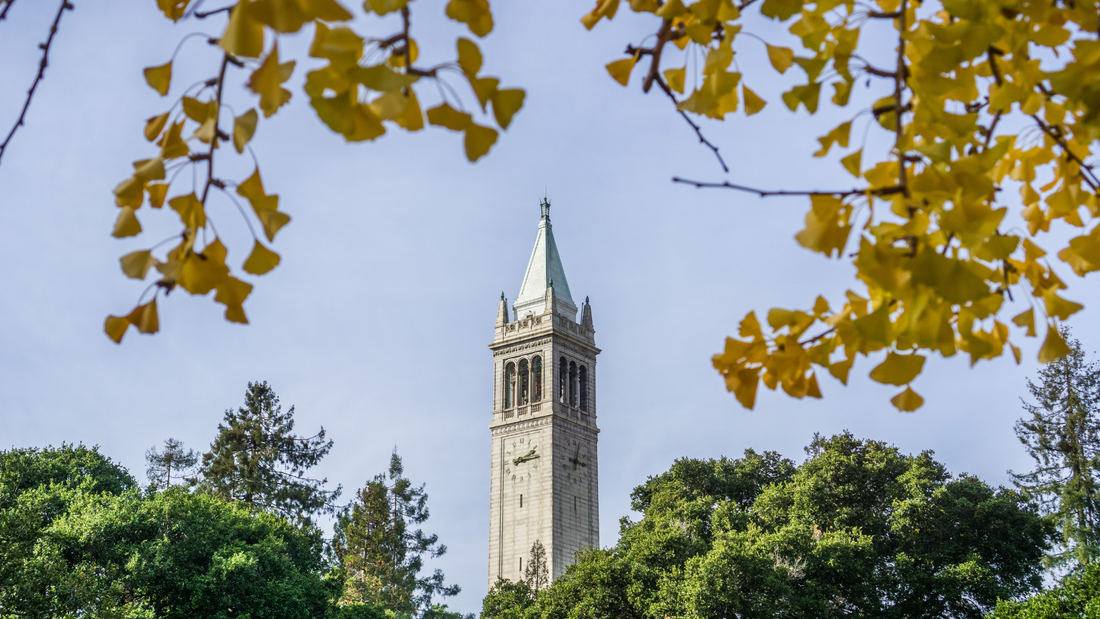
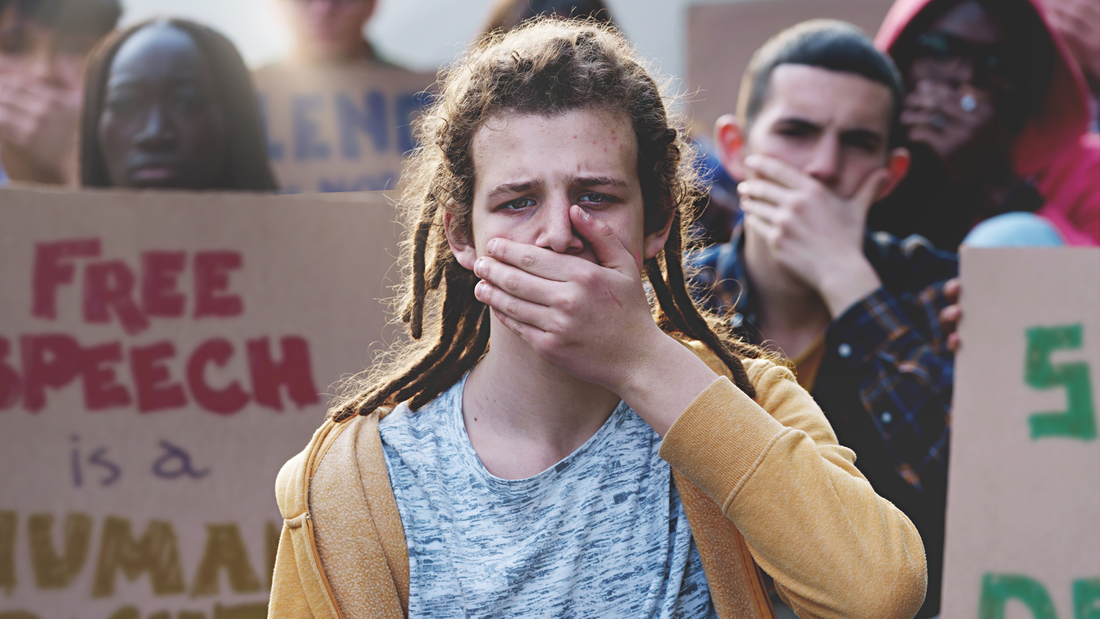
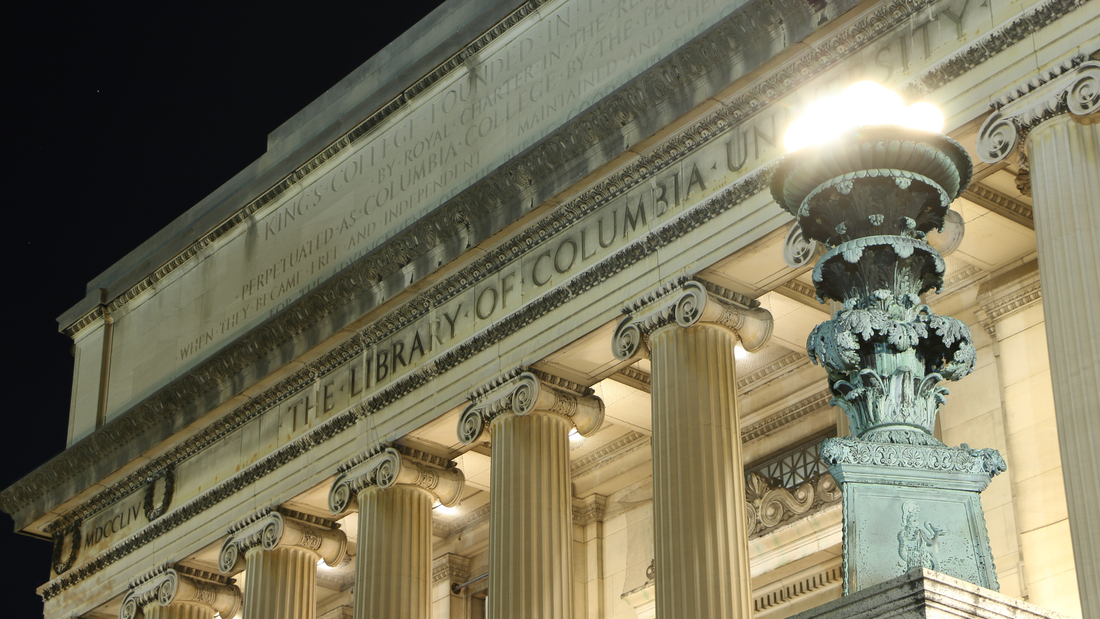
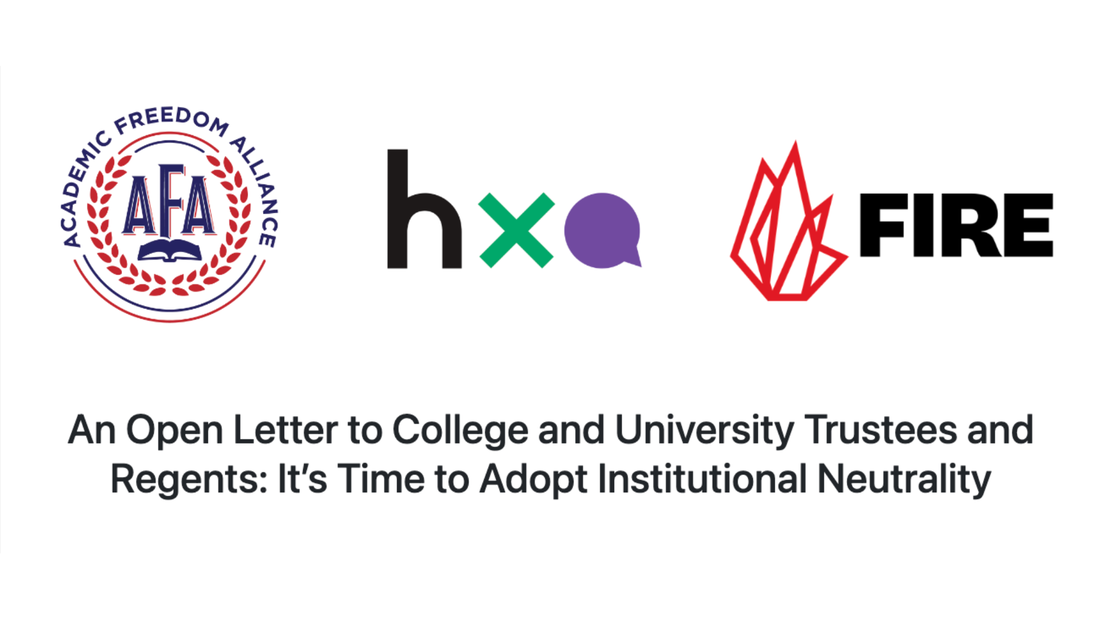
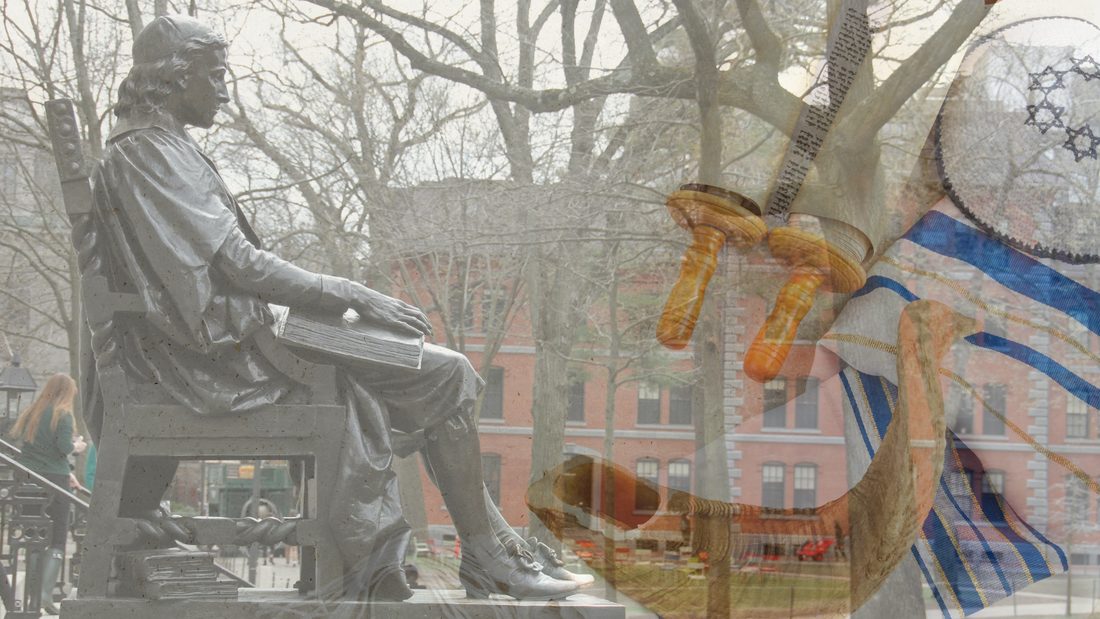
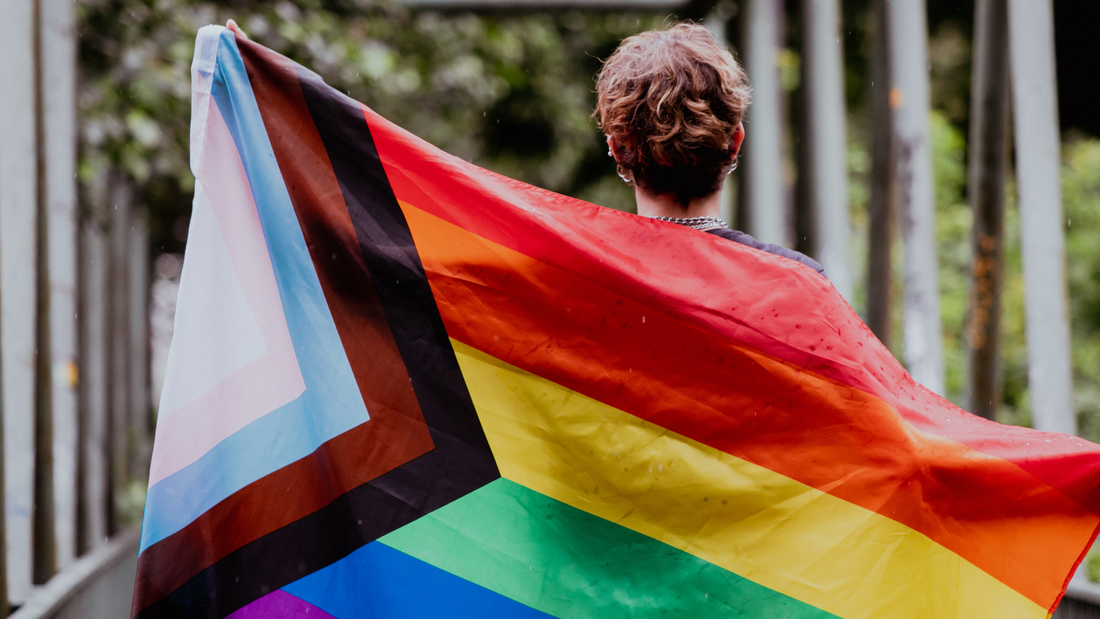
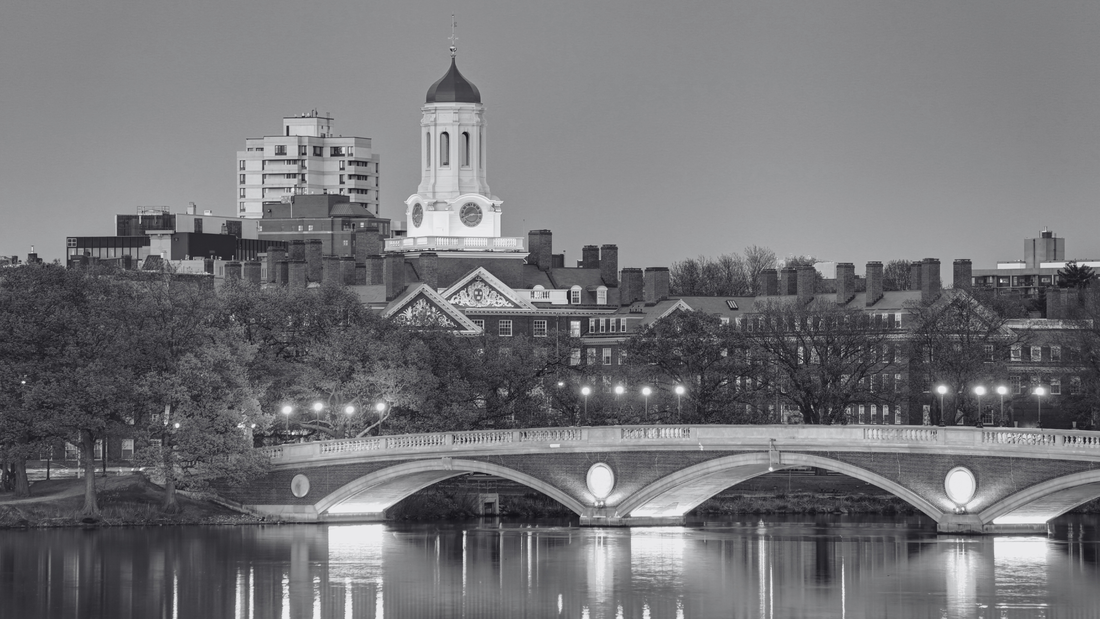


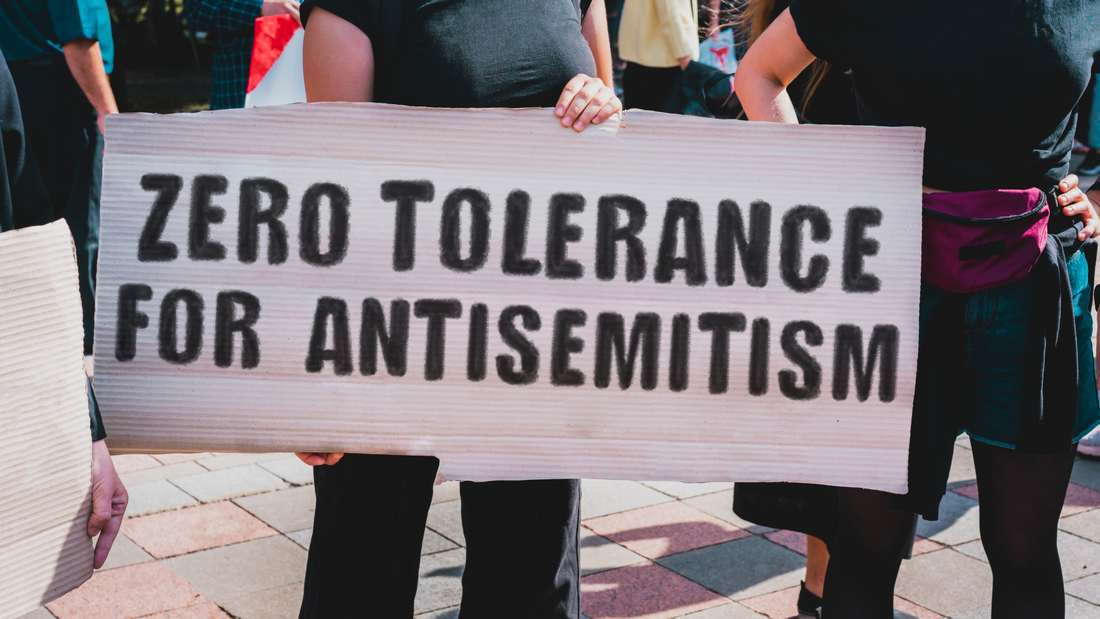
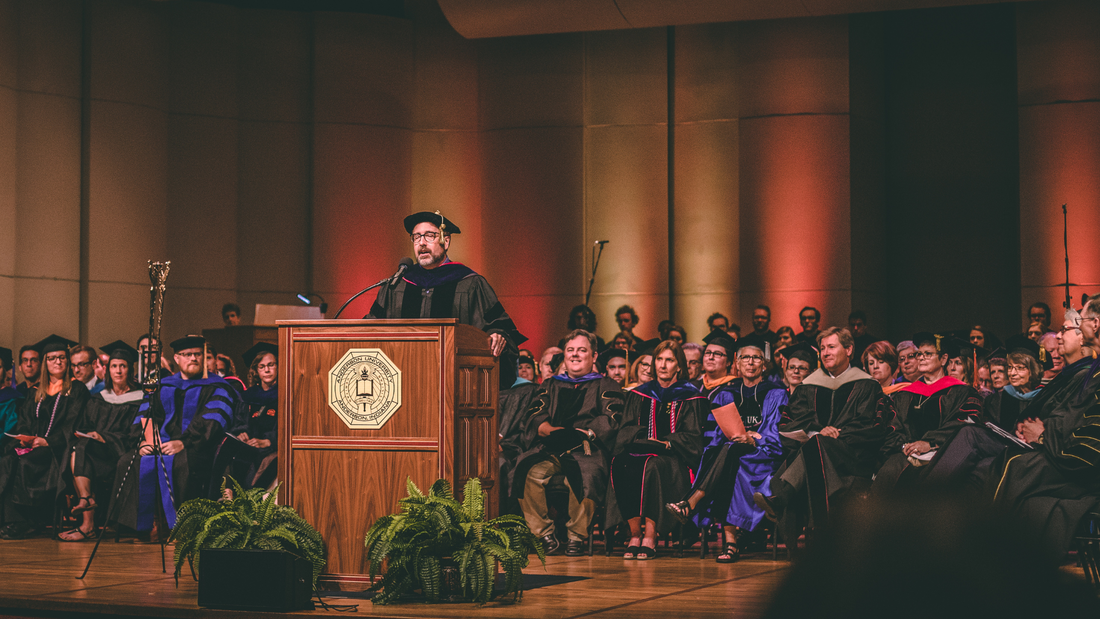
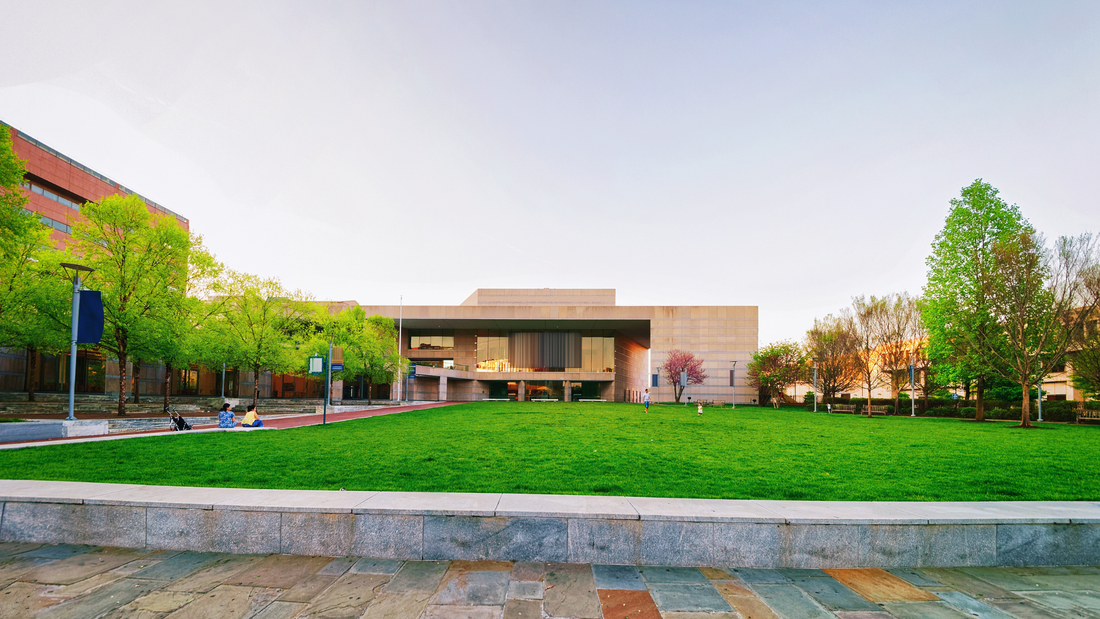
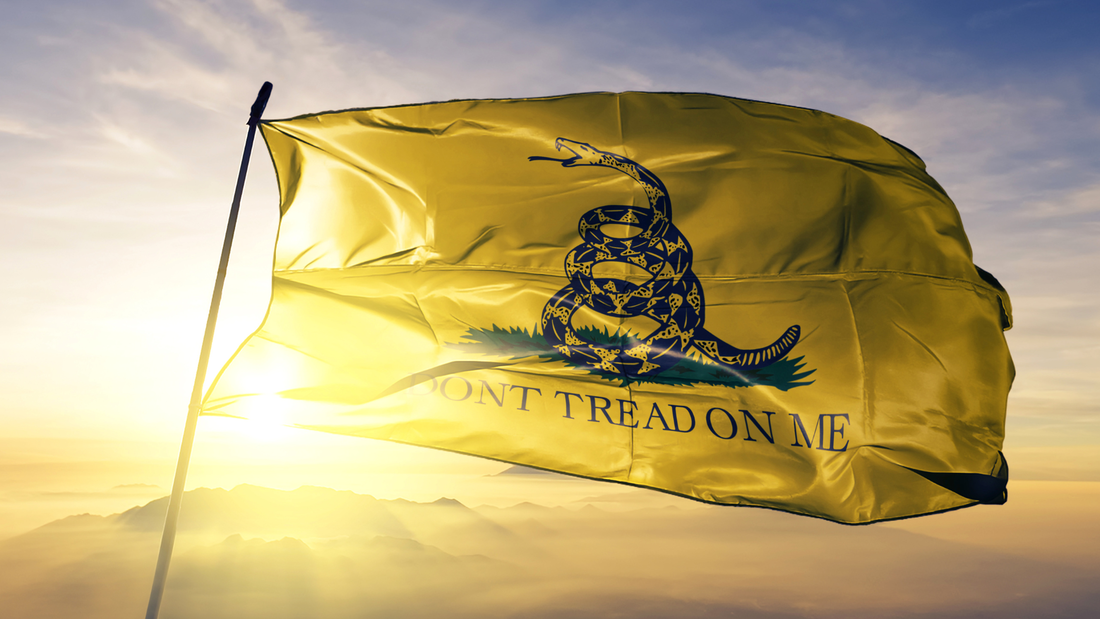

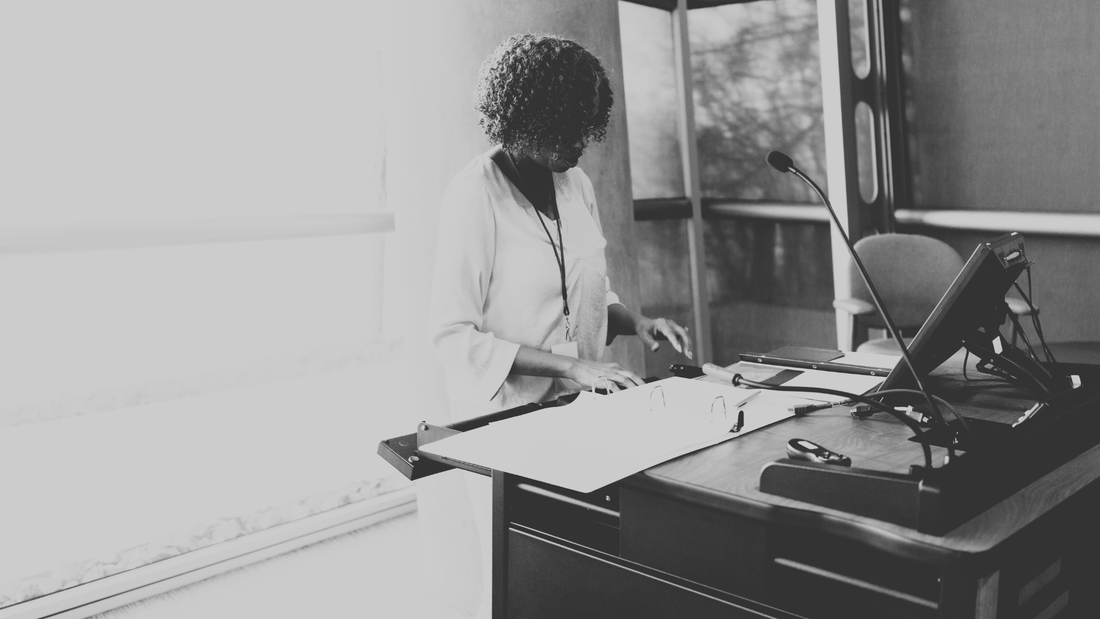

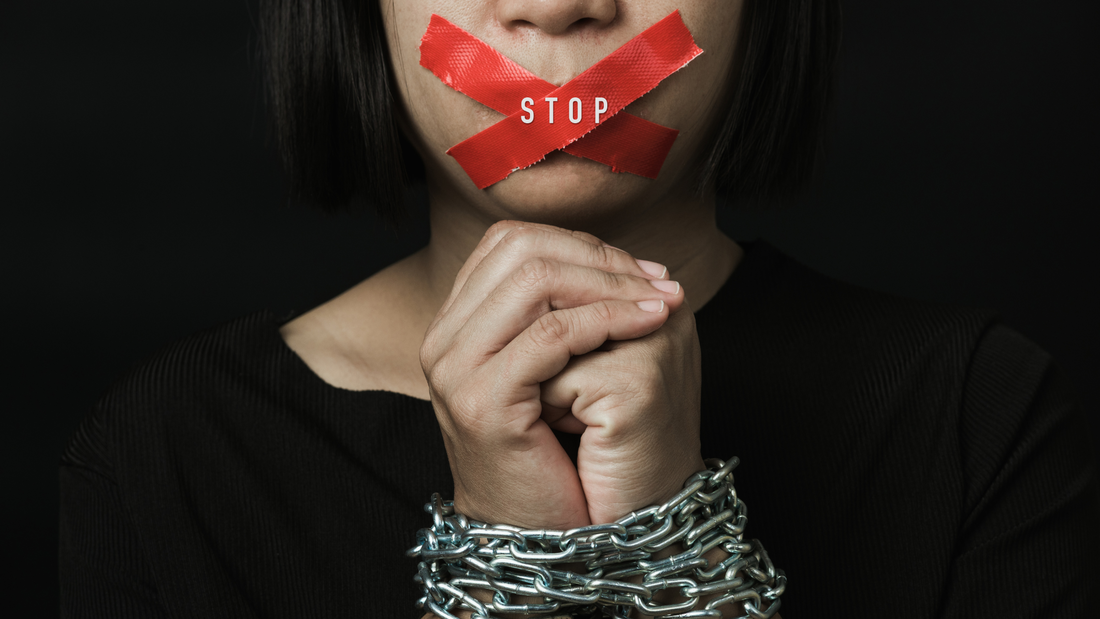
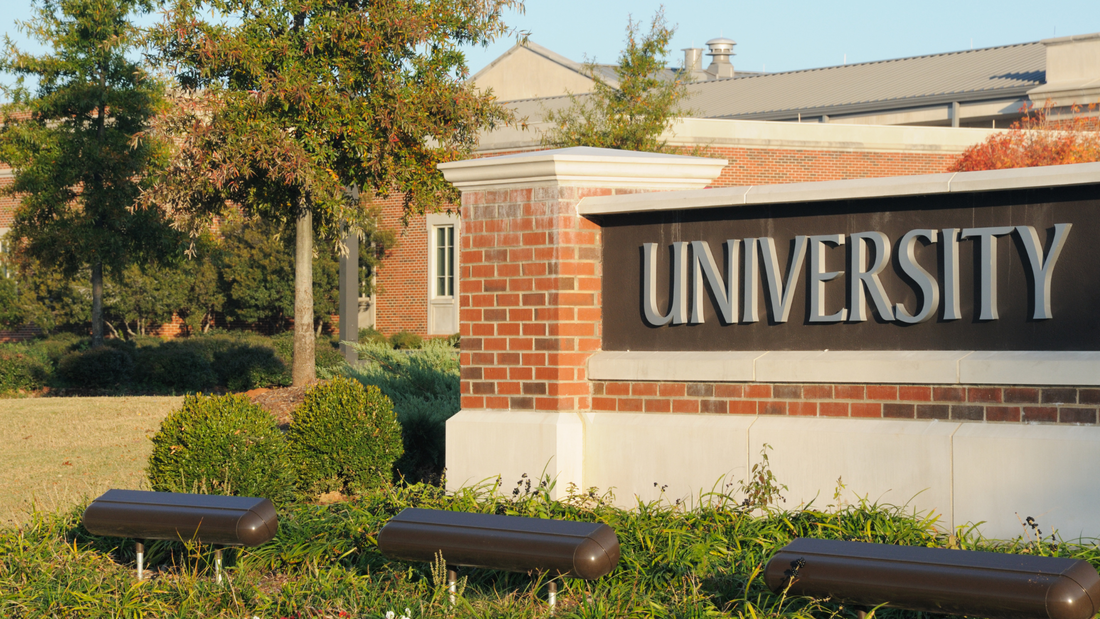
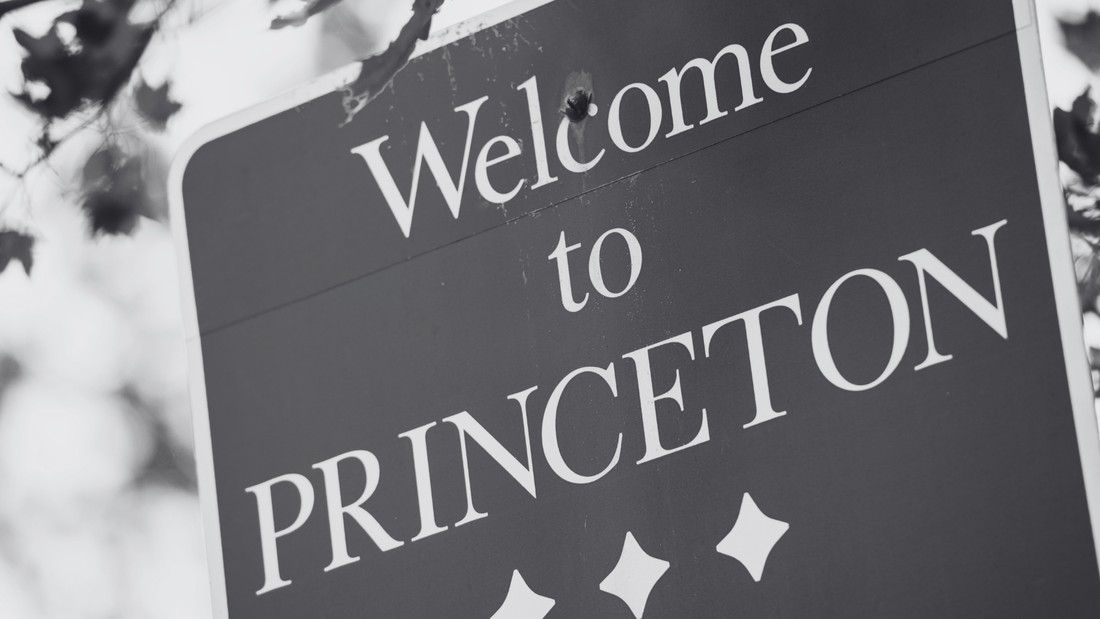
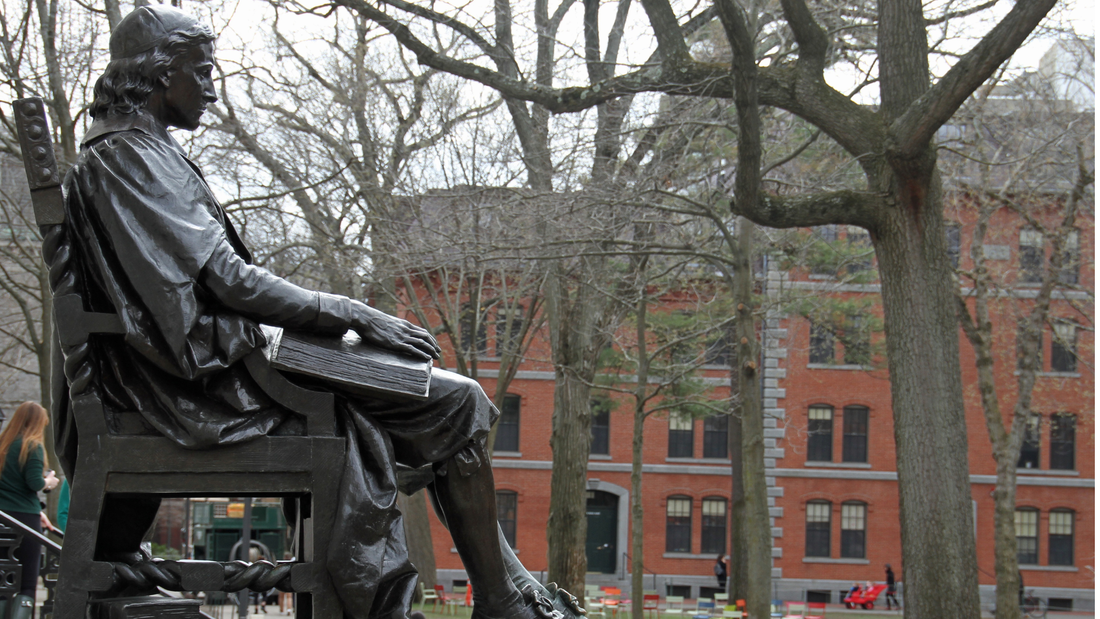
 RSS Feed
RSS Feed